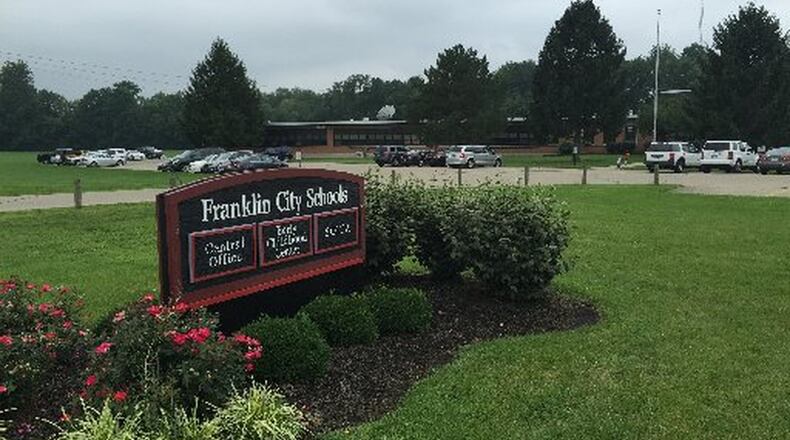Students who are exposed to a COVID-19 positive student are reported to the Warren County Health Department for contact tracing and required to quarantine for 14 days, according to the district’s COVID-19 reopening plan. Exposure is defined as being within 6-feet of someone with COVID-19 for 15 minutes or more.
So some Franklin teachers reduced the number of students who would have to be reported to the health department for contact tracing and quarantining by having them move and switch desks around every 14 minutes or so.
Sander said he didn’t know which or how many teachers had engaged in this practice.
“I know that it was a student idea of a way to stay in class and not be quarantined. I don’t know if it’s one teacher, I don’t know if it’s two. But I know nobody is doing it now,” he said.
Lauren Turner, school nurse and district COVID-19 coordinator, said Wednesday the practice was permitted in some high school classrooms at teacher discretion.
“According to the health department, an exposure is being within 6 feet of someone for 15 minutes or greater so I think the idea was that if students are moving around and they’re not staying in one place for longer than 15 minutes, then per the health department, it would not be considered an exposure if one of the students sitting beside them, for instance, tested positive,” Turner said.
After being contacted by the Dayton Daily News and parents, the Warren County Health District sent an email on Thursday morning to all school superintendents in the county advising against moving kids around in a classroom every 14 minutes to avoid quarantine.
“This is not a sound policy based on the science and may inadvertently expose more individuals to an individual that has COVID-19,” says the email from health district sanitation supervisor Dustin Ratliff.
The email further notes that updated guidance from the U.S. Centers for Disease Control and Prevention say the 15 minute time frame is now cumulative over a 24 hour period, not consecutive. It says if the practice continues, entire classrooms will be quarantined if a student tests positive rather than just students in close contact.
The Dayton Daily News contacted Franklin City Schools after receiving a call from a concerned parent who asked her name not be used. The parent expressed concern that having kids move around and limiting contact tracing would increase the spread of the virus.
Franklin City Schools had reported eight student cases and three staff cases from Sept. 7 until last week under Ohio’s COVID-19 reporting system for schools, according to the Warren County Health Department. Some weeks, more than 100 students are quarantined due to confirmed exposure and/or awaiting test results for them or a family member.
Sander said he had heard other school districts in the county had tried something similar, including Mason City Schools.
Mason City Schools spokeswoman Tracey Carson said there was an instance of it happening but it was never a sanctioned practice and was stopped when district officials learned of it.
“We had a coach who suggested that for students, but it was a little disruptive for students,” she said.
She said instead the district allows some students involved in post-season extracurriculars to self-quarantine and switch to remote learning temporarily so they can still compete in state and regional championship games.
About the Author

